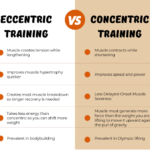You may have heard the term prone bone before, but what does it really mean? Whether you’re an athlete looking to improve your health or just someone curious about your body, understanding prone bone can help you make informed decisions about your fitness and wellness. In this post, we’ll break down what prone bone is, its significance, and why it’s important for you to know about it.
Table of Contents
- What Is Prone Bone?
- The Role of Prone Bone in Your Body
- Common Causes of Prone Bone Issues
- How to Care for Your Prone Bone
- Tips for Preventing Problems with Prone Bone
- Conclusion
- FAQs
What Is Prone Bone?
At its core, a prone bone refers to a bone or joint that experiences increased pressure or stress in the body due to its position or movement. This can happen in various parts of your body, often when you’re lying in a certain position or doing specific exercises that engage certain muscle groups. The term “prone” typically refers to lying face down, but in a more technical sense, it can refer to bones that are subjected to stress when in certain positions.
In general, prone bone is not a medical term but can refer to conditions or positions that put pressure on bones, potentially leading to discomfort or injury. If you’ve ever felt pain after lying down for long periods or after certain exercises, you might have experienced this phenomenon.
The Role of Prone Bone in Your Body
Your bones are responsible for keeping you upright and allowing movement. When you’re in a prone position, certain parts of your body, especially the spine and ribs, are put under pressure. This pressure can sometimes lead to discomfort or even cause strain on the bones themselves. While your bones are incredibly strong, prolonged or intense pressure can lead to a range of issues, from temporary discomfort to more serious conditions like fractures or muscle strains.
Common body areas affected by prone bone stress:
- Back and Spine: When you lie on your stomach or side for too long, the spine may curve unnaturally, leading to back pain.
- Hips and Knees: In certain positions, your hips or knees might take on more pressure than usual, which can lead to discomfort or joint pain.
- Ribs: Prolonged lying on your stomach can sometimes stress your ribs, causing a dull ache or discomfort in your chest.
Common Causes of Prone Bone Issues
Several factors can contribute to prone bone discomfort or stress. Here are a few of the most common causes:
- Poor Sleeping Posture: If you sleep on your stomach or side without proper support, you can create stress on certain bones, especially the spine and ribcage.
- Repetitive Movements: Athletes or those with physically demanding jobs may find that certain repetitive actions or body positions put excess pressure on their bones.
- Prolonged Sitting or Lying Down: Sitting for long periods or lying face down can restrict blood flow and put pressure on certain bones, causing discomfort or pain.
- Injury: A prior injury or condition can lead to an increased risk of developing prone bone discomfort, as your body may shift weight or position to avoid pain.
How to Care for Your Prone Bone
Taking care of your body to prevent prone bone issues is essential for maintaining mobility and avoiding pain. Here are a few simple steps you can follow to keep your bones healthy:
- Use Supportive Pillows: When sleeping or resting, ensure you have the right amount of support. For example, sleeping with a pillow under your knees when on your back or between your legs when on your side can help alleviate pressure.
- Stay Active: Regular movement and exercise can help strengthen muscles around your bones and prevent stiffness. Focus on core-strengthening exercises to support your spine.
- Maintain Good Posture: Whether sitting, standing, or lying down, always try to maintain a neutral spine and avoid positions that put undue stress on your bones.
- Stretch: Gentle stretches can help improve flexibility and reduce the tension that might contribute to prone bone issues.
Tips for Preventing Problems with Prone Bone
Prevention is key when it comes to maintaining healthy bones. Here are some additional tips to help you prevent problems:
- Take Breaks: If you’re sitting for long hours, take frequent breaks to stretch or walk around.
- Watch Your Weight: Extra body weight can place additional stress on your bones and joints, so maintaining a healthy weight can help reduce this risk.
- Sleep Smart: Invest in a good-quality mattress and use proper sleeping techniques to avoid putting pressure on your spine and ribs.
- Listen to Your Body: If you feel any discomfort or pain while in a prone position, make adjustments immediately.
Conclusion
Understanding prone bone is crucial for anyone looking to improve their overall health and well-being. Whether you’re dealing with pain from improper posture, recovering from an injury, or just trying to make sure you’re doing your best to take care of your body, knowing the role that your bones play in different positions is a great first step.
By following proper techniques and staying mindful of your posture, you can help prevent discomfort and keep your bones strong and healthy for years to come.
People Also Ask
1. What does it mean if I have prone bones discomfort?
It means that certain bones in your body are under stress, either from prolonged positions, repetitive movements, or an injury. Adjusting your posture or position can help.
2. How can I relieve discomfort from prone bones issues?
Try stretching, adjusting your posture, and using pillows for support. If discomfort persists, consider consulting a healthcare professional.
3. Can prone bones issues cause permanent damage?
If left unaddressed, excessive pressure on your bones could lead to chronic pain or injury. It’s important to listen to your body and take breaks when needed.
4. Is prone bones discomfort common?
Yes, especially for people who sit or lie down for long periods. It’s essential to stay active and maintain good posture to prevent issues.
By understanding prone bones and taking steps to care for your body, you can enjoy a pain-free, active life!



